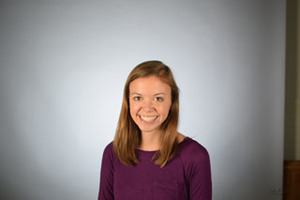 "
"
Only twice in the 16 years that Bob Franken has been Scholastic’s advisor has an unexpected news event required staff to doff the planned cover story and instead report the event on everyone’s mind: Once, during the Sept. 14, 2001 issue, the 9/11 attacks compelled writers to delete their articles and hurriedly replace them with essays about terrorism, patriotism and community; and once, last month, Donald J. Trump’s remarkable victory drove our staff to change course and cover the school’s reaction to the election.
Of course, I don’t mean to compare Trump’s victory to terrorist attacks. Sept. 11 was the largest attack on U.S. soil. Trump’s victory was, simply, one of the more surprising election outcomes on U.S. soil. But in terms of historical importance, the events could prove to be comparable.
Franken says, “It’s not probably as transcendental as 9/11.” But, he adds, this election may mark a shift in the way the Executive Office is managed.
Franken wasn’t shocked that Trump won. “I knew it would be close.” The polls were within the margin of error, he says. “I just had this gut feeling that there were Trump supporters who weren’t talking to the pollsters.”
I am not as wise as my advisor, and I did not see Trump’s victory coming.
Unfortunately, I am in good company.
Washington Post media columnist Margaret Sullivan wrote on Nov. 9, “To put it bluntly, the media missed the story. In the end, a huge number of American voters wanted something different. And although these voters shouted and screamed it, most journalists just weren’t listening. They didn’t get it.”
In the last month, there has been much journalistic hand-wringing over how the press could have seemed so certain of a Clinton victory. Some blame heavy-handed reliance on election forecasting tools or ignorance about the reach of “fake news.” My (admittedly, ameteur) diagnosis: As more and more local news outlets closed their doors, the press has become increasingly East-Coast-centric and has lost points of contact with Middle America.
If the press is in a bubble, my best guess is that many Notre Dame students are, too.
Franken notes, “There is a lot of potential impact and a lot of uncertainty, too, especially on the current college generation.”
That uncertainty reverberates on campus, where pro- and anti-Trump protesters have faced off.
Sullivan tells journalists they didn’t take Trump supporters seriously enough. I think her message is more universal: Listen to opposing views; take people seriously; challenge your biases.
Now is the time.
Sincerely,
Cassidy